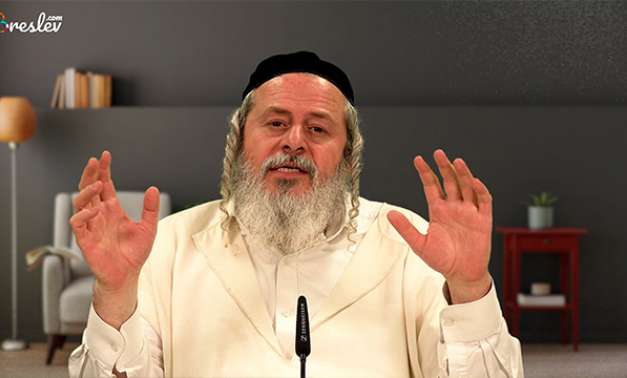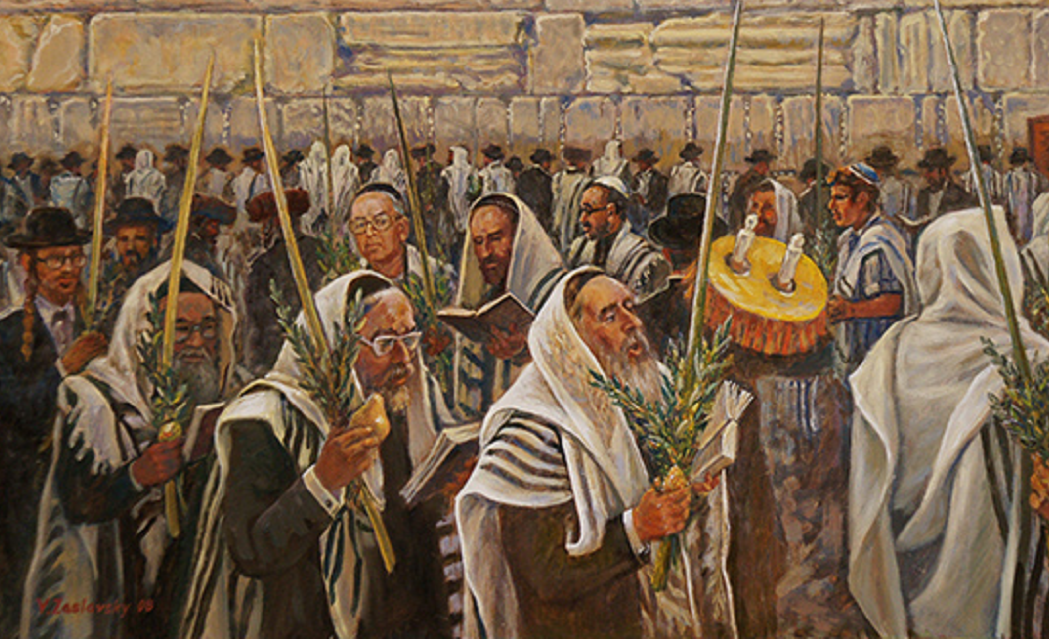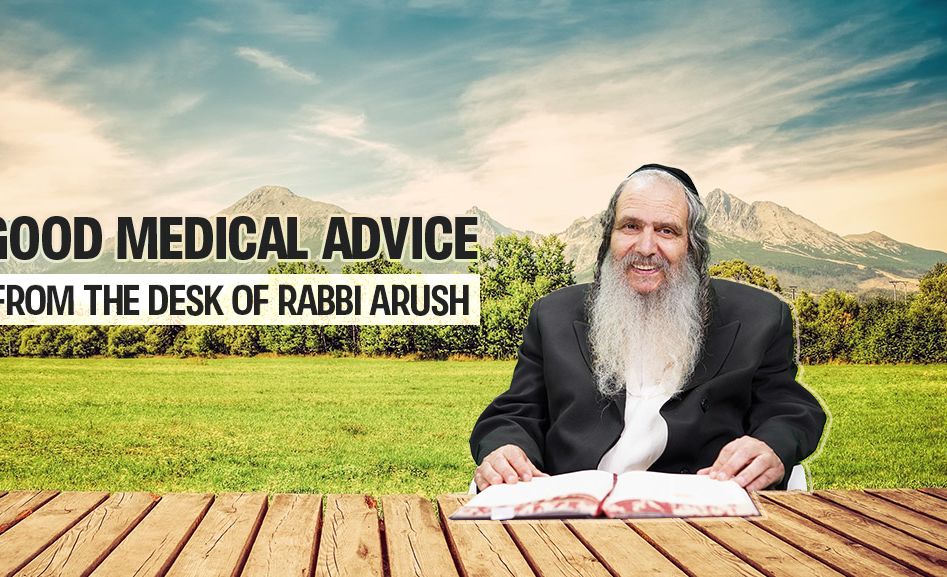
The Secrets of Torah
Based on Likutei Moharan II:120, Rav Kivak says that the more we learn the secrets of the Torah, the more we should know that Hashem is with us…

Translated by Aaron Yoseph
The secrets of the Torah teach us one thing – that Hashem is here. They teach us to believe, to have clear and strong Emunah in Hashem, Who created and constantly recreates everything. The more we learn the secrets of the Torah, the stronger our emunah should be, the more we should know that Hashem is with us, the more we should know that even on the way to Eretz Yisroel, amongst all the trials and tribulations – there are sparks of holiness that we can elevate, that there are secret things going on here. Through learning the secrets of the Torah, when we come to pray, we taste the sweetness of prayer – each word becomes so sweet. We know that we have one goal in our prayers – to be close to Hashem, to fill and arouse our hearts with Emuna.
Kabbalah teaches us how to think, how to reinstate Hashem’s sovereignty over the world. But nowadays everything has fallen to the other side. What does this mean? I’ll give an example. It means that when a person doesn’t have any money, or a shidduch, or if things aren’t going well for him in serving Hashem, he starts to have questions. He suffers and can’t pick himself up. If he’s fortunate, then one day someone hands him a “Meshivat Nefesh” and he opens it up. Slowly, it brings him back to life. He learns how to stay afloat and cope with his situation. He builds up his emunah and simcha. Without the Rebbe, people nowadays head straight for the local Baba and demand,  “Do me a miracle now! Do some magic, give me a bracha now!” Chassidut nowadays has become centered on miracles and blessings, or practical advice. Why is hard for people to come close to the Rebbe? Because people nowadays want someone to tell them exactly what to do – questions about business, shidduchim, where to live – as if this is the whole light of the Baal Shem Tov.
“Do me a miracle now! Do some magic, give me a bracha now!” Chassidut nowadays has become centered on miracles and blessings, or practical advice. Why is hard for people to come close to the Rebbe? Because people nowadays want someone to tell them exactly what to do – questions about business, shidduchim, where to live – as if this is the whole light of the Baal Shem Tov.
This can happen with people who learn Kabbalah in the wrong way too – the more they learn, the harder it is for them to accept the Rebbe’s advice – to wait, be patient, to keep starting again, to pick themselves up after a fall. They know things already. They say, “But how can I just get up now and carry on. According to Kabbalah I need to do this and that to correct what I did. It will take years!” The Rebbe says to them, “Throw out your chochmot, and accept the true meaning.” When a person isn’t willing to accept it, it’s because he thinks he knows better, and can fix things all by himself.
The reality is that you can’t make these Tikkunim, these rectifications, by yourself, and even great Tsaddikim weren’t capable of doing them either. A person being machaven – uses Hashem’s secret names in prayer – can easily fall into the trap of thinking that he’s capable of doing something all by himself. He thinks that by doing these kavonot (intentions in prayer), he’ll fix everything. What a mistake! Even very great Tsaddikim aren’t able to do these things by themselves. Only the very greatest Tsaddikim are really capable of being machaven and achieving what the kavonot are meant to achieve. There are others who are also worthy of being machaven – people who are completely clean of sin, and who dedicate themselves with all their strength – they are worthy of being machaven, because they know that they aren’t doing anything with their kavonot – they attach themselves to the great Tsaddikim who were and are capable.
The walls of the Beis HaMikdash were alive with holiness. Everyone had a feel then, they knew what the Torah was. How can we be comforted today? What can we do? R’ Shimon Bar Yochai saved us – he gave us the secrets of the Torah. But for a thousand years they hid them, because they realized how easy it would be to take them the wrong way. In those times a person’s Rav was a Rishon, a student of Rashi or Rabbeinu Tam. These people were pure and holy Tsaddikim. When you saw them, you didn’t need a Zohar.
The Baal Shem Tov saw the Arizal once, in the way that Tsaddikim see one another. He asked him why he had revealed such deep secrets – there is a danger that someone will learn them in the wrong way, and if he hasn’t worked on himself, learning these things will make him worse? The Arizal answered him that if only he had lived two more years he would have fixed this problem. As it was, the Baal Shem Tov and Rabbeinu came to finish the job for him, and teach us how to learn Kabbalah in the right way.
Learning these things takes years and isn’t for everyone. The message the Rebbe gives us here is this – if your heart is truly drawn to these things, and you’re working on yourself to live with holiness and purity, then by all means go ahead and learn Kabbalah. Just be careful – watch that you’re not becoming arrogant from it, don’t become more of a yesh. Learn the seforim of Tsaddikim as well, so you can properly understand the sifrei Kabbalah.
Happy is the person who learns his portion of Torah. When a person is careful that his Torah doesn’t fall to the other side – what sweetness it is. He knows that there’s no despair, he knows how Hashem is with us. For those who can’t learn these things – don’t be upset, by learning Zohar and the seforim of Tsaddikim we fulfill our obligation to learn Kabbalah. This is Kabbalah for most people – don’t be confused by “Kabbalah.”
This Torah teaches the key to everything – “Don’t think that you’re correcting things all by yourself with your kavonot. You think that you don’t need to travel to Uman, that you don’t need to connect to the great Tsaddikim, you think that you can correct things without the greatest Tsaddikim – this is wrong. You’re mistaken.”
On the other hand, through our connection to the great Tzaddikim, our every avodah (spiritual work) really does achieve so much. The biggest comfort is that there is someone who raises up our avodah and fixes everything. Our every Shacharit, Mincha, and Maariv create the greatest delight above. Connection to the Tsaddikim means that we accept their words and live how they instructed us to, accepting what the Rebbe says – that through my prayer the attribute of mercy is aroused. The main thing is to not think we achieve these things all by ourselves.







Tell us what you think!
Thank you for your comment!
It will be published after approval by the Editor.